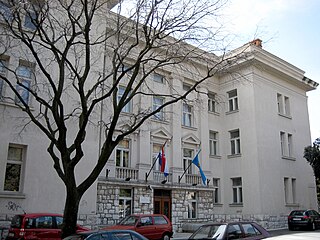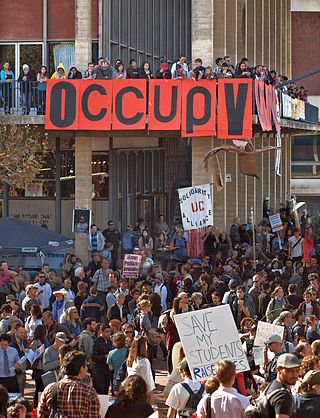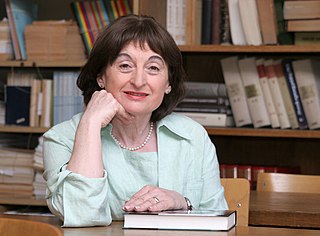Related Research Articles

The Vrije Universiteit Brussel is a Dutch and English-speaking research university located in Brussels, Belgium. It has four campuses: Brussels Humanities, Science and Engineering Campus, Brussels Health Campus, Brussels Technology Campus and Brussels Photonics Campus.

The University of Zagreb is a public research university in Zagreb, Croatia. It is the largest Croatian university and one of the oldest continuously operating universities in Europe. The University of Zagreb and the University North are the only public universities operating in Northern and Central Croatia.
A faculty is a division within a university or college comprising one subject area or a group of related subject areas, possibly also delimited by level. In North America, academic divisions are sometimes titled colleges, schools, or departments, with universities occasionally using a mixture of terminology, e.g., Harvard University has a Faculty of Arts and Sciences and a Law School.

The University of Augsburg is a university located in the Universitätsviertel section of Augsburg, Germany. It was founded in 1970 and is organized in 8 Faculties.

The University of Rijeka is in the city of Rijeka, Croatia, with faculties in cities throughout the regions of Primorje, Istria and Lika.

The Josip Juraj Strossmayer University of Osijek, commonly known as the University of Osijek (UNIOS), is a public university based in Osijek, Croatia. Established in 1975, it is the flagship institution of higher education in Slavonia, and one of the largest and oldest universities in Croatia.

As an act of protest, occupation is a strategy often used by social movements and other forms of collective social action in order to squat and hold public and symbolic spaces, buildings, critical infrastructure such as entrances to train stations, shopping centers, university buildings, squares, and parks. Opposed to a military occupation which attempts to subdue a conquered country, a protest occupation is a means to resist the status quo and advocate a change in public policy. Occupation attempts to use space as an instrument in order to achieve political and economic change, and to construct counter-spaces in which protesters express their desire to participate in the production and re-imagination of urban space. Often, this is connected to the right to the city, which is the right to inhabit and be in the city as well as to redefine the city in ways that challenge the demands of capitalist accumulation. That is to make public spaces more valuable to the citizens in contrast to favoring the interests of corporate and financial capital.
Tatjana Aparac-Jelušić is a Croatian librarian and professor of librarianship. She is currently retired and was, formerly, Professor at the Department of Librarianship, Faculty of Education, University of Osijek and Professor at the Department of Information Sciences, Faculty of Humanities and Social Sciences, University of Zagreb, and Professor at the Department of Information Sciences at the University of Zadar.
Education in Croatia is a right defended by Article 66 of the Constitution which states that everyone is entitled to free compulsory education under equal conditions and in accordance with their aptitudes. Education is mandatory for children aged 6 to 14.

The Faculty of Humanities and Social Sciences or the Faculty of Philosophy in Zagreb is one of the faculties of the University of Zagreb.
The 2009–2010 California university college tuition hike protests were a series of protests held on college campuses in the University of California system and elsewhere in California in September 2009 through March 2010. The size of the protests at each campus varied with over 4,000 people at UC Berkeley and 20 at UC Merced. Protests were mostly made up of students, although faculty, school employees and others joined in the protests as well. Protestors were vocal against a tuition increase, pay cuts and other cutbacks following a budget deficit. The protests have been described as a precursor to the Occupy movement.

In the wake of student protests in Austria since the end of October 2009 against restrictions on the access to higher education, many Austrian universities' lecture halls and rooms were occupied, including the two largest auditoriums in Austria at the University of Vienna.

The School of Medicine in Split is a medical school in Split, Croatia. It is part of the University of Split. The School of Medicine in Split is affiliated with the University Hospital Split, its major teaching hospital, as well as several other community sites. The school's mission is to link education, research and clinical care. Faculty of the School hold appointments in basic sciences in the Basic Science Building, located in Križine neighbourhood of Split, Croatia. The faculty also hold appointments in clinical departments located in multiple affiliated hospitals and institutions. The current Dean of the School is Ante Tonkić.

Occupy Cal included a series of demonstrations that began on November 9, 2011, on the University of California, Berkeley campus in Berkeley, California. It was allied with the Occupy Wall Street movement in New York City, San Francisco Bay Area Occupy groups such as Occupy Oakland, Occupy Berkeley, and Occupy San Francisco, and other public California universities. "Cal" in the name "Occupy Cal" is the nickname of the Berkeley campus and generally refers specifically to UC Berkeley.

The Faculty of Law of the University of Zagreb is the law school of the University of Zagreb. Founded in 1776 by Empress Maria Theresa as part of her comprehensive reforms in the system of education in the Habsburg monarchy, it is the oldest continually-operating law school in Croatia and all of Southeast Europe. Zagreb Faculty of Law offers BA, MA, and Ph.D degrees in law, social work, social policy, public administration, and taxation.

The 2018–2019 student protests in Albania were a series of street protests, demonstrations and online activism events held by the students of the public universities from December 2018 until February 2019, to oppose the high tuition fees. Students across Albania rallied against the moves that were made by the Albanian government to increase the cost of university education, by introducing new fees for exams. The fee comes on top of the dramatically risen university fees, which have failed to lead to any improvement in public education.
Neven Budak is a Croatian historian and professor at the Faculty of Humanities and Social Sciences, University of Zagreb.

Catholic Faculty of Theology is a faculty of the University of Zagreb specialised for philosophical-theological study that was established in 1669. It includes a regional theology study in Rijeka.

Dubravka Oraić Tolić is a Croatian poet, essayist, translator, and theorist of literature and culture.

The Faculty of Philosophy of the University of East Sarajevo abbreviated as FFUIS is a constituent faculty of the University of East Sarajevo located in Pale, a university town twenty kilometers away from Sarajevo in Republika Srpska, Bosnia and Herzegovina. The Faculty is the largest organizational unit of the University of East Sarajevo. It is one of only five faculties of philosophy in the country.
References
- 1 2 3 4 5 Mihaljević, Jerko (6 April 2016). "Što je blokada Filozofskog fakulteta, kako je izgledala i hoće li se ponoviti?". Srednja.hr (in Croatian). Retrieved 29 June 2024.
- ↑ Radic, Natasa (4 May 2009). "Student protests sweep Croatian universities". Southeast European Times. Archived from the original on 8 October 2012. Retrieved 11 June 2010.
- ↑ Klemenčič, Manja; Bergan, Sjur; Primožič, Rok (2015). Student engagement in Europe : society, higher education and student governance. Strasbourg: Council of Europe. ISBN 978-92-871-8117-6. OCLC 943597175.
- 1 2 3 4 Horvat, Karmen (24 May 2009). "Faculty Bloc Lifted 34 Days Later". Dalje.com. Archived from the original on 6 September 2010. Retrieved 11 June 2010.
- ↑ Gvardiol, Tajana. "Zagrebački studenti blokirali referadu Filozofskog fakulteta | 24sata". 24sata. Retrieved 29 June 2024.
- ↑ "Zagreb: Prekinuta blokada Filozofskog fakulteta". Jutarnji list (in Croatian). 5 December 2009. Retrieved 10 November 2020.
- ↑ "Letter of support from Judith Butler". Archived from the original on 28 July 2011. Retrieved 5 January 2011.
- ↑ Sadiki, Larbi, ed. (2015). Routledge Handbook of the Arab Spring: Rethinking Democratization. Routledge. p. 336.